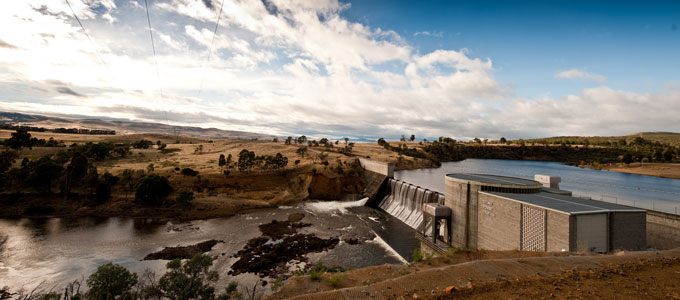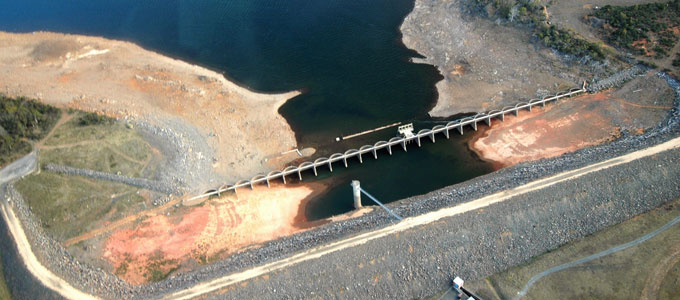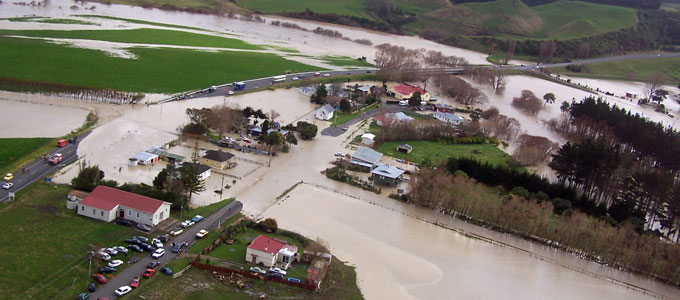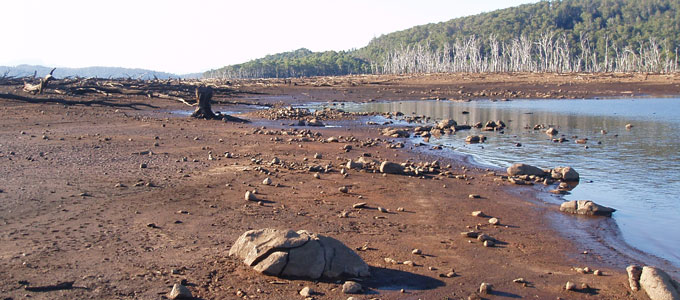THOUGHT LEADERSHIP
Climate resilience in practice
Climate change poses new uncertainties and risks to power and water asset developers, operators and financiers, in addition to the challenges already facing these sectors.
Higher temperatures, changes in water availability and rainfall, more frequent and severe weather events, and natural disasters may pose threats to power and water infrastructure as well as communities and the environment.
These risks are being increasingly recognised and acknowledged globally. But what practical steps can we take now to prepare our power and water assets and businesses for the impacts of climate change? Can we do more than ‘mitigate’ or ‘adapt’? Could innovative and timely action to manage risks strengthen businesses and increase their resilience to a changing climate?
The idea of building climate resilience recognises that climate change exists and will result in various forms of ‘shock’ to the systems in which we operate. Climate resilience is about taking action now to ensure that our business and economic systems and operations are well prepared for the types of disturbances that we may see more of in the future.
Climate resilience built into management strategies
Despite most businesses now recognising the realities of a changing climate, few have started to build climate resilience into their projects or operations. In a 2011 survey, 90 per cent of companies had faced climate-related impacts within the previous three years, but only 30 per cent were actively responding to those threats.
Although the possible future impacts of climate change are uncertain, including the financial implications for businesses, now is the time to invest in building resilience. Building climate resilience must become a standard component of overall risk management strategies, particularly for water and energy asset owners and operators.
The more we understand the potential impacts of climate change and risks to our projects and our operations, the better we can prepare, adapt, and build resilience to climate change impacts.
An owner–operator perspective
Hydro Tasmania, Australia’s largest renewable energy producer and water manager, has already experienced a level of climate variability, and is well aware of the implications of increasing variability in the future. This includes changes to average long-term system inflows, higher risk of major droughts, and occurrences of unseasonal and unprecedented weather conditions. Hydro Tasmania has been undertaking a range of activities that build its climate resilience.
As part of the Hydro Tasmania group, specialist power and water consultant firm Entura supports the business through a number of actions that safeguard Tasmania’s ongoing access to high-quality, reliable water and power.
Understanding vulnerability through climate change analysis
For Hydro Tasmania to address its vulnerabilities to future climate change, it first needed a more comprehensive understanding of how Tasmania’s climate and catchments may be affected in the future.
Entura collaborated with the CSIRO (Australia’s national scientific research organisation) to undertake the first fine-scale climate and river system modelling for Tasmania, through the Climate Futures for Tasmania and the Tasmania Sustainable Yields projects.
The results indicated that under climate change Tasmania could expect gradual temperature rises, increased rainfall over coastal regions, reduced rainfall over central Tasmania, changes to run-off patterns, and changes to the frequency and severity of extreme weather events including increased rainfall intensity and floods.
These conditions could have secondary impacts such as asset and building damage, sediment and debris accumulation, increased bushfire susceptibility, and environmental and social impacts.
Generation planning and drought management
With this improved understanding of future climate impacts, Entura is helping Hydro Tasmania identify and prioritise a range of actions. State-of-the-art hydrographic data and hydrological forecasting enables Hydro Tasmania to improve generation planning, management of storages, and drought management.
Generation can be planned over a range of time-scales and demand scenarios, supported by long-term storage targets and storage operating rules. Additional storage can be accessed to help drought-proof the system in low inflow periods. When lake levels are low, management procedures built into the storage operating rules minimise risks and impacts on social and environmental values.
Flood forecasting, dam safety and emergency planning
Being climate resilient also means preparing for ‘too much’ water. While higher rainfall can result in increased flooding, it can also be a gift to hydropower asset owners, if managed carefully.
Entura has helped Hydro Tasmania assess how to upgrade its power schemes to maximise the benefits of predicted water increases for increased power generation. We have developed flood forecasting and flood support systems, and supported Hydro Tasmania to make improvements to its dam safety and emergency planning programs.
And by being involved in upgrading dams and designing spillways to withstand predicted increases in the frequency and magnitude of floods, we’re contributing to building greater potential resilience into Hydro Tasmania’s assets and operations.
Managing assets for long-term sustainability
Climate resilience for long-term sustainability is a key consideration for a proactive, risk-based asset management program. Entura builds climate risk management and resilience into our projects right from the earliest stages of planning and throughout the design process.
We do this by fully considering and testing the range of operating scenarios and conditions that may be encountered, and building in robustness and flexibility to deal with the potential range of situations.
For example, we:
- explore ways to reduce the damage to turbines due to increased silt, sediment and debris caused by extreme rainfall
- consider solutions to the potential thermal gain in power stations in warmer conditions and its subsequent impacts on generator temperature and performance
- evaluate how transmission line design might address the predicted climate variability along the length of transmission line corridors, and whether the present standards are sufficient for potential future conditions, and
- consider the impacts of wind loading, changes in drainage and the efficiency of foundations.
Protecting environmental and social values
Entura is providing ongoing support to Hydro Tasmania to build climate resilience into its operations while also managing environmental and social values.
This includes accommodating multiple users of water resources through maintaining adequate downstream flows for the environment, water supply, irrigation and recreational uses, and protecting fisheries resources and threatened species.
Supporting global efforts to build climate resilience
Entura supports clients throughout Asia, the Pacific, and southern Africa to build their own climate resilience strategies and actions. We help our clients understand the risks and potential impacts of climate change for their current and planned systems and operations – whether for hydropower, transmission, dams, irrigation or water supply – and advise them on the likelihood and consequences of these risks and impacts occurring.
Through understanding the vulnerabilities of our clients’ businesses, we help develop operational solutions that will increase resilience to future changes in climate and improve long-term business viability.
If you would like to learn more about building greater climate resilience into your power or water project or operations, whether for hydropower, transmission systems, dams, irrigation or water supply, please contact Dr Eleni Taylor-Wood on +61 3 6245 4582 or Shekhar Prince on +61 412 402 110.
About the authors
Tammy Chu is the managing director of Entura, one of the world’s most experienced specialist power and water consulting firms. She has extensive managerial and business development experience in the consulting engineering industry within Australia and internationally, focusing on business strategy, change and transformation, international sales, culture, and profit and revenue growth. As a civil engineer, Tammy specialised in the design and construction of mini-hydro and hydropower systems, project management, hydropower investigations, prefeasibility and feasibility studies, environmental assessments and approvals, resource investigations and resource water management. An active member of the engineering community, Tammy publishes papers on a range of subjects, and regularly presents at conferences.
Dr Eleni Taylor-Wood is Entura’s Principal Consultant, Environmental and Social Science. Eleni has 20 years’ experience successfully managing large-scale, complex projects that run over several years, as well as providing expert advice and independent review for a range of infrastructure and planning projects. She has worked on projects around the world including in Australia, Mozambique, South Africa, Iceland, Colombia, India, Malaysia, Mekong, Solomon Islands, Fiji and Papua New Guinea. Her experience covers a vast gamut of studies including: environmental and social impact assessment and management; strategic management of wetlands and waterway; feasibility and approvals for new hydropower projects, environmental flow determination and assessment, and sustainability assessments. Eleni is currently one of eleven Accredited Assessors under the Hydropower Sustainability Assessment Protocol worldwide.
MORE THOUGHT LEADERSHIP ARTICLES
14 May, 2015










